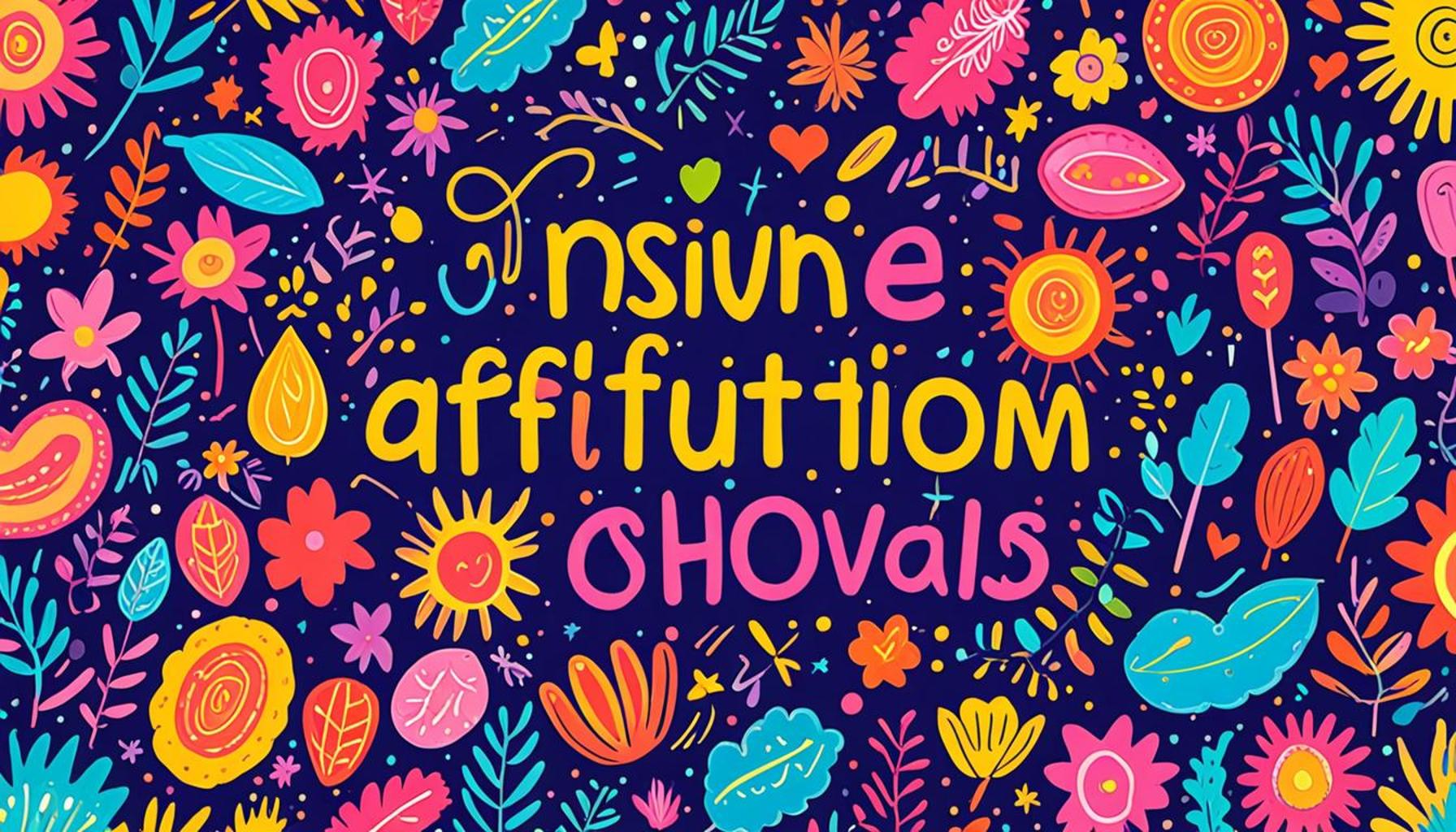Positive Affirmations for Relationships Top Examples Benefits

Fostering Deeper Connections with Positive Affirmations
In our increasingly demanding lives, maintaining strong romantic relationships can often feel like navigating a labyrinth. Everyday stresses, from work pressures to family responsibilities, can strain even the most loving partnerships. However, the introduction of positive affirmations offers a transformative solution to enhance intimacy and communication between couples. These simple yet profound statements can change how partners perceive themselves and each other, fostering a more resilient bond.
Integrating affirmations into a daily routine can offer significant benefits for couples in Nigeria and worldwide. For instance, consider how common verbal expressions in various Nigerian cultures provide insight into relationship dynamics. The use of affirmations can serve a similar purpose, enriching relationships and promoting emotional wellness. Here are several compelling reasons why positive affirmations hold immense value:
- Enhances Communication: By creating an environment where affirmation is practiced, partners are encouraged to share their thoughts and feelings openly. This open dialogue helps to resolve misunderstandings and strengthen emotional ties. In a society where traditional gender roles may sometimes hinder communication, affirmations can break down these barriers.
- Boosts Self-esteem: Regularly affirming oneself – through statements like “I am worthy of love” or “I bring value to this relationship” – can significantly enhance self-esteem. High self-worth is essential for individuals to contribute positively to a relationship, leading to mutual respect and support.
- Encourages a Positive Mindset: Emphasizing gratitude through affirmations shifts focus toward appreciation of each other. For example, acknowledging a partner’s hard work or small gestures fosters a nurturing atmosphere in the relationship.
Furthermore, tailoring affirmations to specific relationship dynamics can yield remarkable improvements in connection and understanding. For example, consider implementing affirmations such as:
- “I am grateful for our love and respect.” Expressing gratitude can evoke positive feelings and reinforce the bond.
- “We grow stronger together every day.” This encourages both partners to acknowledge their shared journey, fostering a sense of teamwork.
- “Our relationship is a source of joy and comfort.” Reminding each other of the positivity in the relationship can enhance overall satisfaction.
Exploring positive affirmations reveals their potential as effective tools for healing, trust-building, and nurturing love. Whether embarking on a new romantic journey or celebrating decades together, these affirmations create a profound impact that resonates deeply within the relationship. As partners engage in this practice, they often discover renewed enthusiasm for their connection, ultimately leading to a flourishing partnership.
For couples navigating the complexities of love and companionship in Nigeria, embracing the art of positive affirmations could be the key to unlocking a more harmonious and satisfying relationship experience.

SEE ALSO: Click here to read another article
Unlocking the Power of Positive Affirmations in Relationships
As couples navigate the intricacies of partnership, positive affirmations emerge as a powerful tool to enhance intimacy and understanding. These affirmations function as verbal declarations that can reinforce love and togetherness, which is especially significant in the Nigerian context, where communal values often underpin personal relationships. By incorporating positive affirmations into daily interactions, couples can reap a multitude of benefits that strengthen their bond and promote emotional stability.
Research suggests that the words we speak to ourselves and each other can profoundly influence our emotions and perceptions. In relationships, positive affirmations can act as a beautiful reminder of individual worth and the collective strength of the partnership. By regularly practicing these affirmations, couples have the opportunity to reshape negative mindsets and foster a healthier dialog. This can be particularly relevant in cultures where traditional conceptions of masculinity and femininity occasionally impede open expressions of vulnerability.
The Role of Affirmations in Nurturing Bonds
When partners engage in affirmations, they create a spiral of encouragement that elevates the relationship’s overall quality. Here are some notable benefits of positive affirmations for couples:
- Improves Conflict Resolution: Regular affirmation practice encourages understanding and patience during conflicts. When partners remind each other of their shared values, they can approach disagreements with a collaborative mindset rather than a combative one.
- Strengthens Emotional Connection: Repeatedly affirming each other fosters emotional intimacy and deepens trust. Statements like “I believe in you and your dreams” can provide the necessary reassurance during challenging times.
- Encourages Personal Growth: Positive affirmations extend beyond the relationship. By encouraging personal development, individuals feel more accomplished and fulfilled, which, in turn, benefits their partnership.
In Nigeria, where relationships often blend modern values with traditional expectations, positive affirmations become even more essential. They allow couples to navigate their unique dynamics with grace and understanding, recognizing that growth is a collective journey. This adjustment of perspective encourages partners to lift each other up instead of competing or fostering resentment.
To illustrate, couples can adopt tailored affirmations that resonate with their individual experiences and cultural contexts. Examples might include:
- “We are a team, and together we can overcome any challenge.” This reinforces the notion of partnership and solidarity.
- “Our love makes us resilient.” Acknowledging love’s strength can serve as a protective factor against misunderstandings.
- “I appreciate your presence in my life.” Acknowledgment of one another’s contributions fosters a sense of being valued.
By consciously integrating these affirmations into daily encounters, couples can cultivate a nurturing atmosphere. This climate of positivity not only helps to solidify their connection but also encourages personal fulfillment—an essential ingredient for enduring relationships.
| Advantages | Details |
|---|---|
| Increased Communication | Using positive affirmations encourages open dialogue among partners, fostering an environment where feelings and thoughts can be shared freely. |
| Enhanced Emotional Connection | Affirmations help strengthen the emotional bond between partners, facilitating deeper understanding and support for one another. |
| Conflict Resolution | Regularly practicing affirmations creates a positive mindset, making it easier to navigate conflicts with empathy and compassion. |
| Boosted Self-Esteem | Both partners gain confidence through affirmations, which leads to healthier interactions and a more balanced relationship dynamic. |
SEE ALSO: Click here to read another article
The Transformative Impact of Positive Affirmations in Everyday Life
The practice of positive affirmations in relationships transcends beyond simple declarations; it fosters a profound cognitive shift that can redefine interpersonal dynamics. In the diverse cultural tapestry of Nigeria, where relationships often reflect collective responsibilities alongside individual desires, employing tailored affirmations can be pivotal. By consistently vocalizing positivity, couples change their mental frameworks, facilitating a nurturing environment for love and growth.
Examples of Effective Positive Affirmations
Implementing affirmations in daily conversations can prove transformative for couples. Here are some additional examples that resonate within the Nigerian context:
- “We are each other’s support system.” This affirmation reinforces the idea that both partners are there to uplift one another during challenging times, echoing the cultural importance of communal support.
- “Every day, we choose to love and respect each other.” This statement highlights the intentionality in relationships, emphasizing that love requires continuous effort from both partners.
- “Together, we create a safe space where we can be ourselves.” Affirming the need for authenticity fosters openness and vulnerability, which are crucial for deepening emotional connections.
These affirmations remind couples that they are not alone in their journeys; they have a partner committed to mutual upliftment. Such declarations can be especially impactful in societies deeply rooted in traditional gender dynamics, where personal expression sometimes feels stifled.
Enhancing Relationship Satisfaction
Research from the field of psychology underlines that the consistent practice of positive affirmations can lead to increased relationship satisfaction. According to a study published in the Journal of Social Psychology, couples who regularly engage in affirmations report higher levels of trust and commitment. This finding aligns with the experiences of many Nigerian couples, who often intertwine their personal identities with those of their partners.
In addition, affirmations can aid in mitigating stress, a common challenge faced by couples navigating societal pressures. For instance, when a partner expresses, “I love how we handle challenges together,” it not only boosts morale but also reassures both partners of their cooperative capabilities in overcoming hardships.
Building a Culture of Appreciation
Consistently using positive affirmations cultivates a culture of appreciation. Gratitude is a key component in healthy relationships, particularly in a Nigerian context where communal support and loyalty are highly valued. Affirmations such as “I am grateful for your patience and understanding” can deepen appreciation and create a nurturing environment where both partners feel loved and valued.
- “Your happiness is my priority.” This affirmation reinforces the significance of putting each other’s well-being at the forefront, which can enhance emotional security.
As partners adopt these affirmations, they participate in a collective movement toward emotional enlightenment and strengthening their bond. The journey towards a fulfilling relationship is ongoing, and implementing positive affirmations offers a practical and effective pathway to achieving relational goals.
In Nigeria, where many cultural narratives often focus on traditional notions of masculinity and femininity, acknowledging the importance of positive affirmations is a progressive step toward fostering equality and respect in partnerships. By bridging the gap between tradition and modernity through these powerful statements, couples are better equipped to navigate the complexities of love and interdependence, ultimately leading to more robust and resilient relationships.
CHECK OUT: Click here to explore more
Conclusion: Embracing Positive Affirmations for Healthier Relationships
In summary, the integration of positive affirmations into daily relationship practices offers profound benefits for couples, particularly in the context of Nigeria’s unique cultural landscape. By adopting affirmations such as “We are each other’s support system” and “Every day, we choose to love and respect each other,” partners can create a framework of mutual respect and growth that enhances their emotional connection. These positive declarations not only reinforce the importance of support and appreciation but also empower couples to confront challenges collaboratively amid societal pressures.
The evidence supporting the positive impact of affirmations on relationship satisfaction is compelling. Studies indicate that couples who engage in this practice experience heightened levels of trust and commitment. Furthermore, promoting a culture of appreciation through affirmations fosters resilience, creating a nurturing environment where both partners feel valued and understood. In navigating the complexities of love and societal expectations, these affirmations serve as guiding principles that enable couples to thrive together.
Ultimately, embracing the practice of positive affirmations is not merely about exchanging words; it is about cultivating a shared vision for the future and prioritizing each other’s happiness. As couples in Nigeria and beyond explore this approach, they contribute to a transformative shift towards deeper emotional bonds, mutual respect, and enduring happiness in their relationships. The journey toward relational fulfillment is continuous, and embarking on this path with positive affirmations can lead to lasting positive change.


